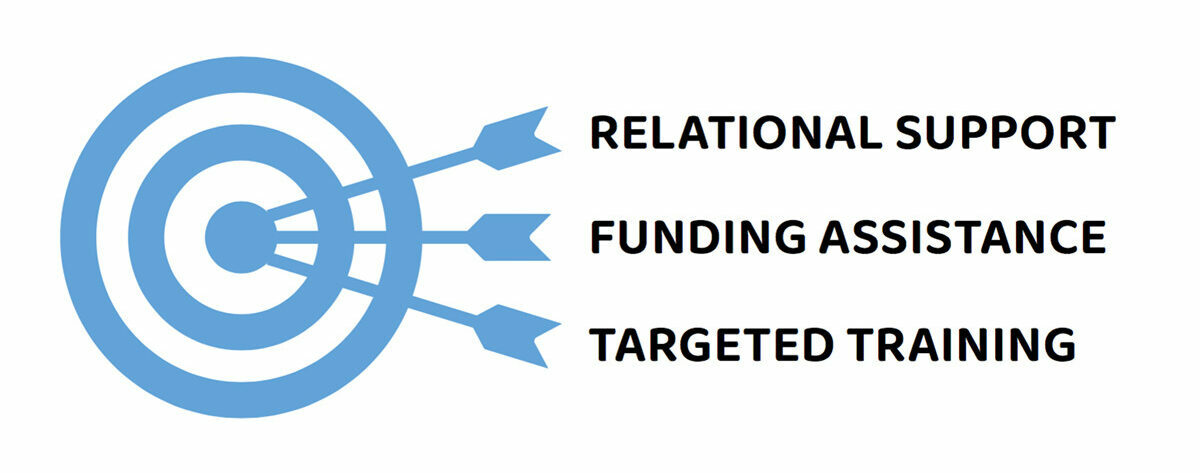‘We can see future possibilities now’: An evaluation of Bridging the Gap’s PLAN project


REACHING PARENTS IN NEED
In 2020 Bridging the Gap (BTG) identified a significant gap in services for parents experiencing domestic violence, homelessness or housing instability, unemployment, mental health issues and financial hardship in areas of the Peel region (WA). To address this, the Parents, Learning, Advancing, Nurturing (PLAN) project was created to assist vulnerable parents aged 18-64, offering holistic, high-touch case management with both practical and relational aspects of support that transcended traditional service boundaries.
Funded by Lotterywest and evaluated by the Centre for Social Impact at The University of Western Australia team from October 2021 to June 2023, the PLAN project gives targeted support through a bespoke suite of activities:
- The creation of a Personal Life Plan
- One-on-one mentoring sessions
- Group training sessions
- Referral to support services
- Access to brokerage funds for immediate needs
- Assistance in developing career-ready skills and gaining employment
TAILORED SUPPORT
Two mentors across the PLAN sites in the Mandurah, Rockingham and Kwinana areas of the Peel region provided individualised mentoring, guided by the participants’ goals and supported by the mentors’ insights, expertise and lived experience.
Based on shared understandings of what was required for at different points in participants journeys, mentors could assist vulnerable parents to address urgent needs first, such as paying bills to avoid eviction, and then progress towards medium-term and long-term goals around mindset and self-development, career development, and life circumstances.
During the project evaluation, the CSI UWA team found that the project is having a positive impact on vulnerable parents and transforming families in the Peel region through an innovative service delivery model.
WHAT WORKED?
Data showed strong satisfaction with the PLAN project with 97% of participants who completed the satisfaction form¹ saying they were satisfied with the service they had received.
Based on the findings, the key activities of the PLAN project that were most impactful and meaningful were:
- The relational support provided through mentoring;
- The rapid funding assistance to address urgent needs; and
- Targeted training to support progress towards identified goals.
Findings revealed that the PLAN project provided emotionally supportive, action-oriented and holistic support unlike anything else available in the community. In many cases, the shifts that occurred in a participant’s inner world mirrored positive changes in their material circumstances.

MINDSET AND SELF-DEVELOPMENT
Data showed that the PLAN project was very effective in helping to improve participants’ mental health, confidence and self-esteem in a way that enabled them to achieve positive outcomes in other areas of life and feel optimistic about the future.
- Of the participants who completed the satisfaction forms², over 80% had a positive change in self-esteem and confidence.
- For participants who identified mental health as a priority area to address³ 88% recorded a positive change in their mental health after participating in the PLAN project.
“It’s transformative… The person I was when I came into the project is not the same as who I am now. I feel empowered – there’s that inner conviction that I’m willing and determined to win the day” (Participant)
CAREER DEVELOPMENT
Improving participants’ confidence, self-esteem, and mental health, and equipping them with opportunities for training, study and skills-development, or mentorship for finding a job, led to significant improvements in employment for many participants.
For participants for whom education and skills training, employment and further studies were identified as priority areas to address⁴:
- 60% had a positive change in education and skills training
- 63% had a positive change in their employment status
- 78% had a positive change in further studies
Additionally, 92% of survey respondents⁵ felt more confident to get a job after participating in the PLAN project and 88% had identified the career pathway they would like to take.
“By the first week [in the project] I knew I needed a job and childcare. By the second week I had written a resume and handed it around… I had 100% confidence in getting results with [my mentor]. Things just start happening. It didn’t take long before I had a job, I had my license, [and] my son was in daycare” (Participant)
LIFE CIRCUMSTANCES
Working with their mentor, PLAN project participants improved their circumstances in a number of ways. Often this went hand in hand with improved mental wellbeing, a greater sense of stability and security, and greater means of supporting children. For example:
- Finding secure accommodation
- Getting a driving license
- Obtaining a Violence Restraining Order
- Paying off debts
- Beginning the process of owning a home, and
- Making a plan for the future.
Creating a better life for their children was a key motivator for many, and the progress that parents made during and after their time in the PLAN project was often considerable.
“I was in a FDV situation for 11 years, I just thought that was how life was meant to be until I came here. I felt so comfortable staying in that situation until I walked in here. [I realised] that it’s not a healthy environment… In the first 3 months of working with [my mentor], I built confidence. I felt confident to leave my relationship. I have so much pride… I never thought I would be where I am now. I’m thriving, my son’s thriving” (Participant)
FOOTNOTES
¹n=36, ²n=50, ³n=26
⁴Relevant participants: n=9, n=17, and n=14 respectively
⁵n=26
